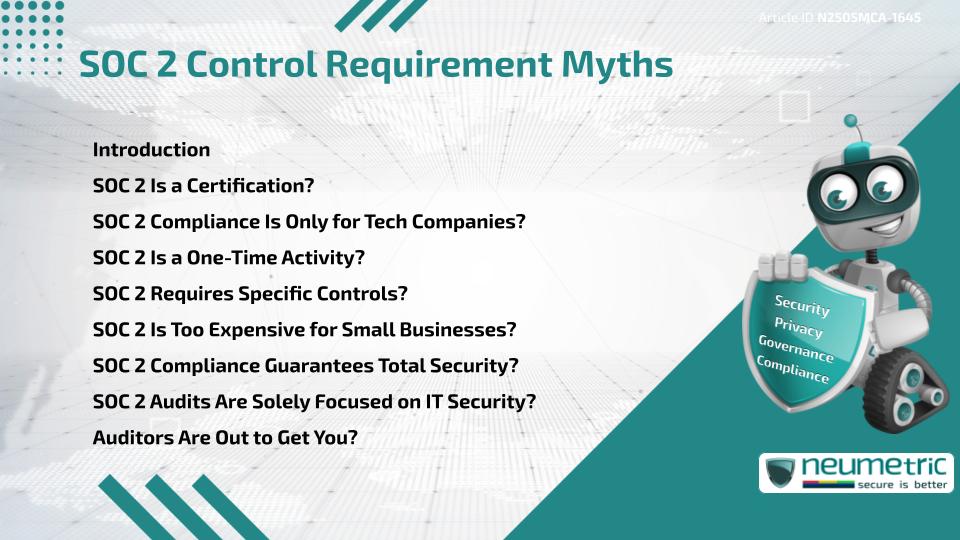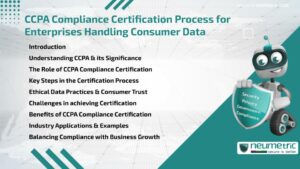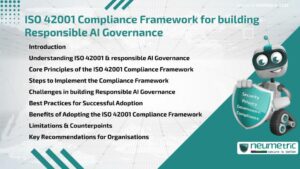Table of Contents
ToggleIntroduction
In today’s digital landscape, safeguarding Customer Data is paramount. SOC 2 Compliance serves as a benchmark for Organisations to demonstrate their commitment to Data Security. However, misconceptions about SOC 2 control requirements can lead to confusion & misinformed decisions. This article aims to debunk prevalent SOC 2 control requirement myths, providing clarity & guidance for businesses navigating the Compliance process.
SOC 2 Is a Certification?
A common misconception is that SOC 2 results in a certification. In reality, SOC 2 provides an attestation report, not a certification. An independent auditor evaluates an Organisation’s controls & issues a report detailing their effectiveness. This report offers insights into the Organisation’s adherence to the Trust Services Criteria, but it does not equate to a formal certification.
SOC 2 Compliance Is Only for Tech Companies?
While technology companies were early adopters of SOC 2, the Framework is applicable to any Organisation handling Customer Data. Industries such as Healthcare, Finance & retail can benefit from SOC 2 Compliance. The principles of security, availability, processing integrity, confidentiality & Privacy are universal, making SOC 2 relevant across various sectors.
SOC 2 Is a One-Time Activity?
Some believe that achieving SOC 2 Compliance is a one-off task. However, SOC 2 Compliance is an ongoing process. Organisations must continuously monitor & update their controls to maintain Compliance. regular Audits, typically conducted annually, ensure that the Organisation’s practices remain effective over time.
SOC 2 Requires Specific Controls?
Another myth is that SOC 2 mandates specific controls. In truth, SOC 2 outlines criteria under the Trust Services Criteria, but it does not prescribe exact controls. Organisations have the flexibility to implement controls that align with their operations, provided they meet the overarching criteria. This approach allows for customization based on the Organisation’s unique needs.
SOC 2 Is Too Expensive for Small Businesses?
The perception that SOC 2 Compliance is prohibitively expensive for Small Businesses is misleading. While there are costs associated with achieving Compliance, these can be scaled based on the Organisation’s size & complexity. Small Businesses can focus on the most relevant Trust Services Criteria, such as security, to manage costs effectively.
SOC 2 Compliance Guarantees Total Security?
It’s important to understand that SOC 2 Compliance enhances an Organisation’s security posture but does not guarantee absolute security. The Framework ensures that effective controls are in place, but it cannot account for every potential Threat. Continuous Monitoring & Improvement are essential to address emerging Risks.
SOC 2 Audits Are Solely Focused on IT Security?
While IT security is a significant component, SOC 2 audits encompass more than just technical controls. The Framework also evaluates Policies, procedures & organizational practices related to data handling. This holistic approach ensures that security is embedded throughout the Organisation, not just within the IT department.
Auditors Are Out to Get You?
There’s a misconception that auditors aim to find faults & penalize Organisations. In reality, auditors work collaboratively with Organisations to assess & improve their controls. The goal is to enhance Data Security & Compliance, not to create adversarial relationships. Engaging openly with auditors can lead to valuable insights & improvements.
Takeaways
- SOC 2 provides an attestation report, not a certification.
- The Framework is applicable across various industries, not just tech companies.
- Compliance is an ongoing process requiring regular Audits & updates.
- Organisations have flexibility in implementing controls that meet the Trust Services Criteria.
- SOC 2 Compliance is scalable & achievable for Small Businesses.
- While enhancing security, SOC 2 does not guarantee complete protection against all Threats.
- Audits assess organizational practices beyond just IT security.
- Auditors aim to collaborate with Organisations to improve their security posture.
Conclusion
Understanding the truth behind SOC 2 control requirement myths is essential for any Organisation aiming to build trust & maintain strong security practices. Misconceptions can lead to poor planning or misaligned strategies. By clarifying these myths, businesses can approach SOC 2 Compliance with accurate expectations & a more effective strategy. Education & open dialogue are key to leveraging SOC 2 as a valuable tool for security & operational excellence.
FAQ
What is the difference between SOC 2 Type 1 & Type 2 reports?
A SOC 2 Type 1 report assesses the design of controls at a specific point in time, while a Type 2 report evaluates the operational effectiveness of those controls over a period, typically six (6) months.
Can a company use its vendor’s SOC 2 Report for Compliance?
No, each Organisation must undergo its own SOC 2 Audit. Relying solely on a vendor’s report does not suffice for demonstrating your Organisation’s Compliance.
Does SOC 2 Compliance cover physical Security Measures?
Yes, SOC 2 evaluates physical Security Controls, such as access to facilities & data centers, as part of its comprehensive assessment.
Is SOC 2 Compliance mandatory for all businesses?
While not legally required, SOC 2 Compliance is often expected by clients & partners, especially for service providers handling Sensitive Data.
How often should an Organisation undergo a SOC 2 Audit?
Organisations typically conduct SOC 2 audits annually to ensure ongoing Compliance & address any changes in their operations or the Threat landscape.
Need help?
Neumetric provides organisations the necessary help to achieve their Cybersecurity, Compliance, Governance, Privacy, Certifications & Pentesting goals.
Organisations & Businesses, specifically those which provide SaaS & AI Solutions, usually need a Cybersecurity Partner for meeting & maintaining the ongoing Security & Privacy needs & requirements of their Clients & Customers.
SOC 2, ISO 27001, ISO 42001, NIST, HIPAA, HECVAT, EU GDPR are some of the Frameworks that are served by Fusion – a centralised, automated, AI-enabled SaaS Solution created & managed by Neumetric.
Reach out to us!





